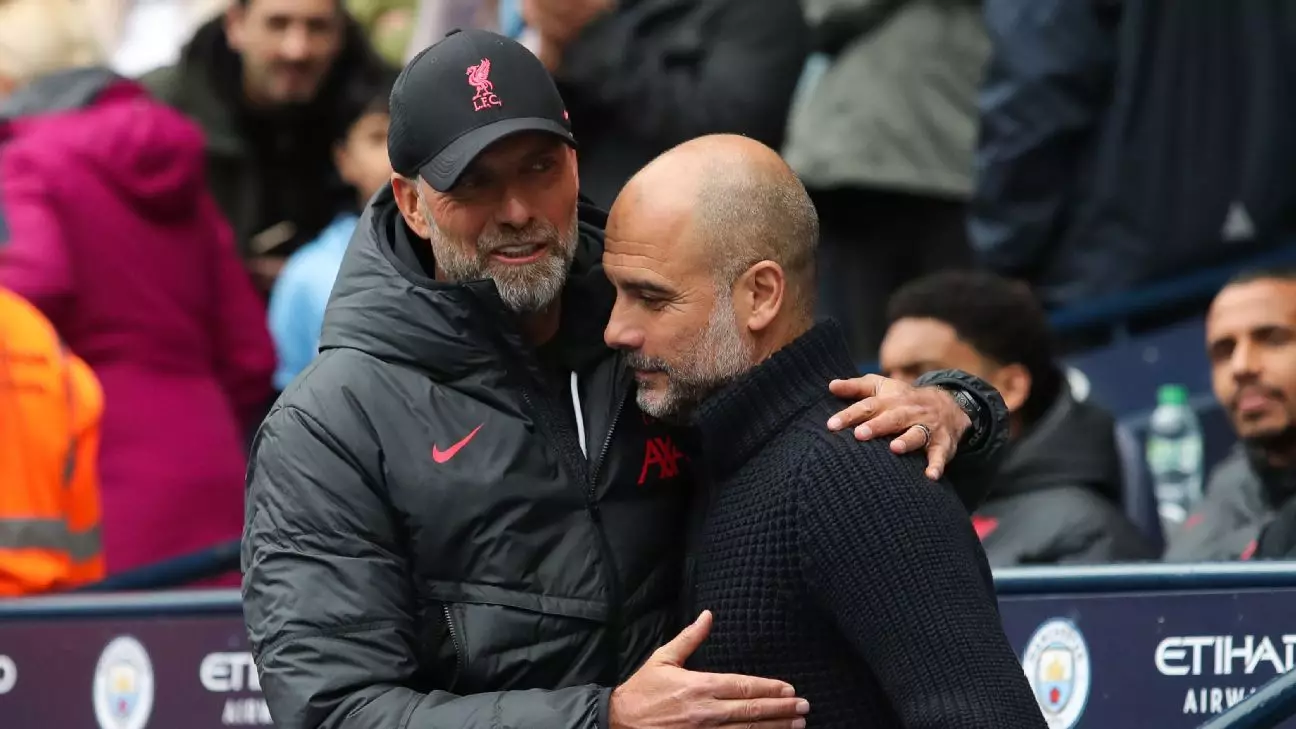In recent weeks, English football has been engulfed in controversy due to potential financial infractions committed by one of its most successful clubs. Jürgen Klopp, the former manager of Liverpool, has candidly expressed his sentiments regarding Manchester City’s alleged breaches of financial regulations. The implications for the football community, particularly for clubs like Liverpool that have been direct competitors of City, are significant. This article delves into Klopp’s comments on the matter, his perspective on Liverpool’s future, and his views on an often-overlooked aspect of the football calendar.
Klopp’s remarks regarding a prospective celebration on the island of Mallorca if Manchester City were to lose their titles showcases a mix of humor and deep-seated rivalry. During his recent public engagement with Red Bull, Klopp was succinct in asserting his hypothetical plans for a party, subtly revealing the emotional weight that City’s dominance has carried for Liverpool. Over the past few seasons, Klopp’s Liverpool finished as runners-up to Guardiola’s squad on two occasions—2018-19 and 2021-22—leaving an indelible mark on the club’s history.
The notion of a gathering where Klopp pledges to “buy the beer” invites a light-hearted facet to the intense pressure of managerial responsibilities. Nevertheless, it also underscores a collective sentiment amongst Liverpool fans and players that the competitive landscape of the Premier League must remain just, with accountability for any improprieties at its core. Klopp’s party would not merely symbolize triumph; it would represent a moment of historical rectification for those who’ve felt overshadowed.
The ongoing investigation into Manchester City is a multifaceted discussion that raises critical questions about financial integrity in football. With the Premier League’s independent commission unveiling a staggering 115 alleged breaches dating from 2009 to 2018, the gravity of the situation cannot be overstated. City has consistently denied any wrongdoing, a statement that adds layers of complexity to the discourse surrounding football’s financial rules.
While Klopp admitted that he had not closely followed the details of the commission’s proceedings, the gravity of the matter looms large. The potential consequences of these allegations could reshape the footballing hierarchy, not just for Manchester City but for competitors like Liverpool as well. This inquiry into financial practices necessitates rigorous scrutiny to ensure fair play, a fundamental principle in sportsmanship.
As conversations about systemic issues surrounding financial governance unfold, Klopp also addressed another pressing topic: the future of some of Liverpool’s key players. The fate of stars like Trent Alexander-Arnold, Mohamed Salah, and Virgil van Dijk, all of whom run out of contract at season’s end, hangs in a precarious balance. Klopp’s lighthearted acknowledgment of his relief at not being in charge of contract negotiations reflects the ongoing uncertainty swirling around the club.
His wishes for Salah, whom he regards as the club’s greatest striker in the modern era, reveal Klopp’s emotional investment in players he has nurtured during his tenure. It points to a deeper yearning for continuity as the club navigates potential turnover at pivotal positions. Klopp’s playful banter about Van Dijk potentially playing for New York in his later years also highlights a sense of camaraderie and genuine fondness for the players he has coached.
In a surprising twist during the conference, Klopp launched a critique of the FIFA Club World Cup, labeling it “useless.” His concerns about player welfare and scheduling reflect a broader issue facing modern football. The relentless buildup of fixtures has become a pressing topic among managers, as injuries mount and players face burnout. Klopp’s desire to reduce the number of games in some leagues touches on an essential truth: the health of the sport cannot be sacrificed for profit.
With the ongoing strain on players and the calendar packed with events, Klopp’s call for a re-evaluation of league structures speaks volumes. As clubs, players, and fans navigate through periods of uncertainty and competition, the necessity for reform in scheduling practices has never been clearer.
Jürgen Klopp’s recent comments provide a window into the unique pressures and dynamics of top-level football management. The juxtaposition of his light-hearted plans for a party in Mallorca with serious discussions about contract negotiations and financial integrity exemplifies the multifaceted nature of his role. As controversies continue to unfold, the overarching desire for accountability, player welfare, and the integrity of competition remains paramount. As the narrative surrounding Manchester City’s financial conduct continues, one thing remains clear: the future of football hinges on both the enforcement of regulations and the preservation of its core values.


Leave a Reply